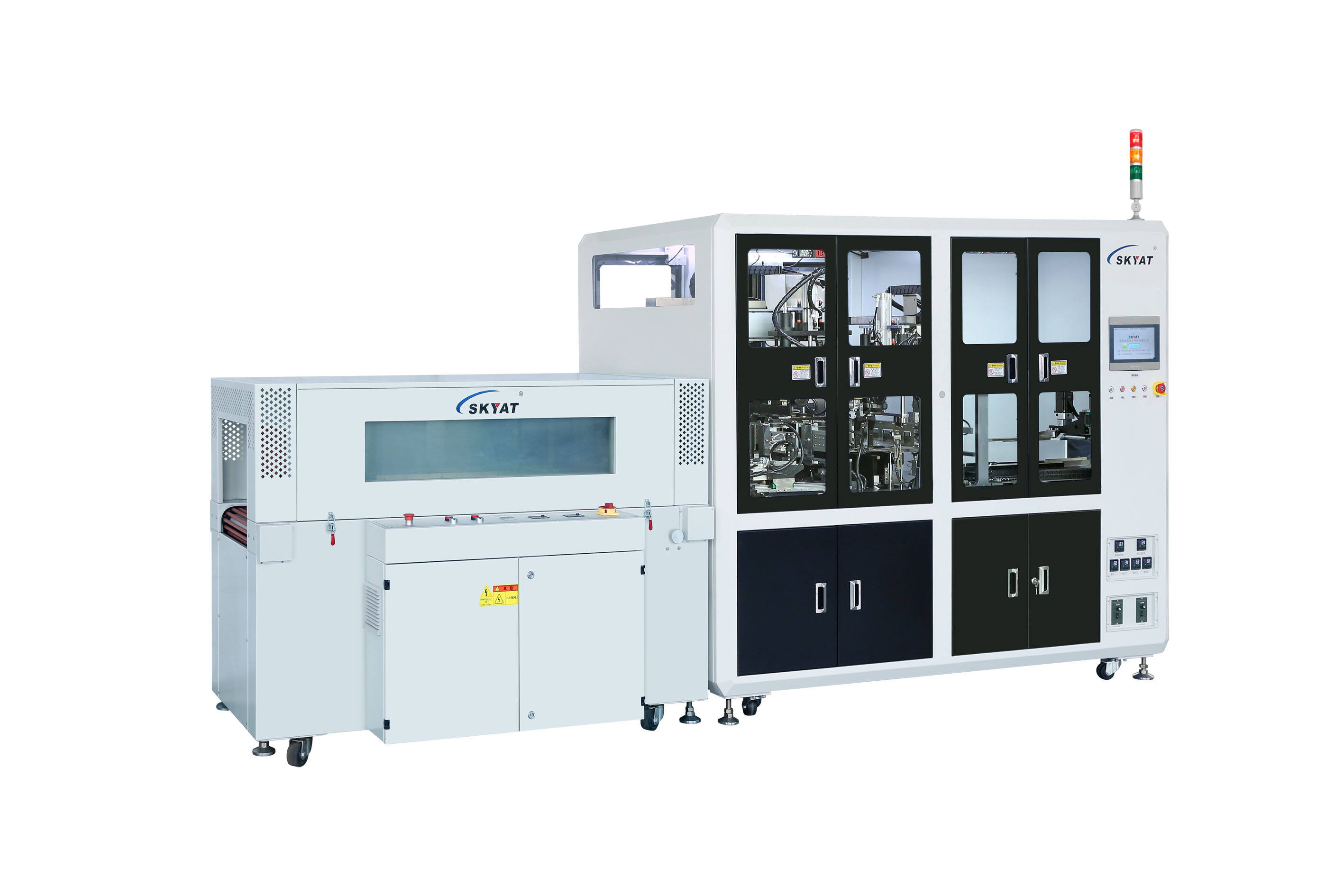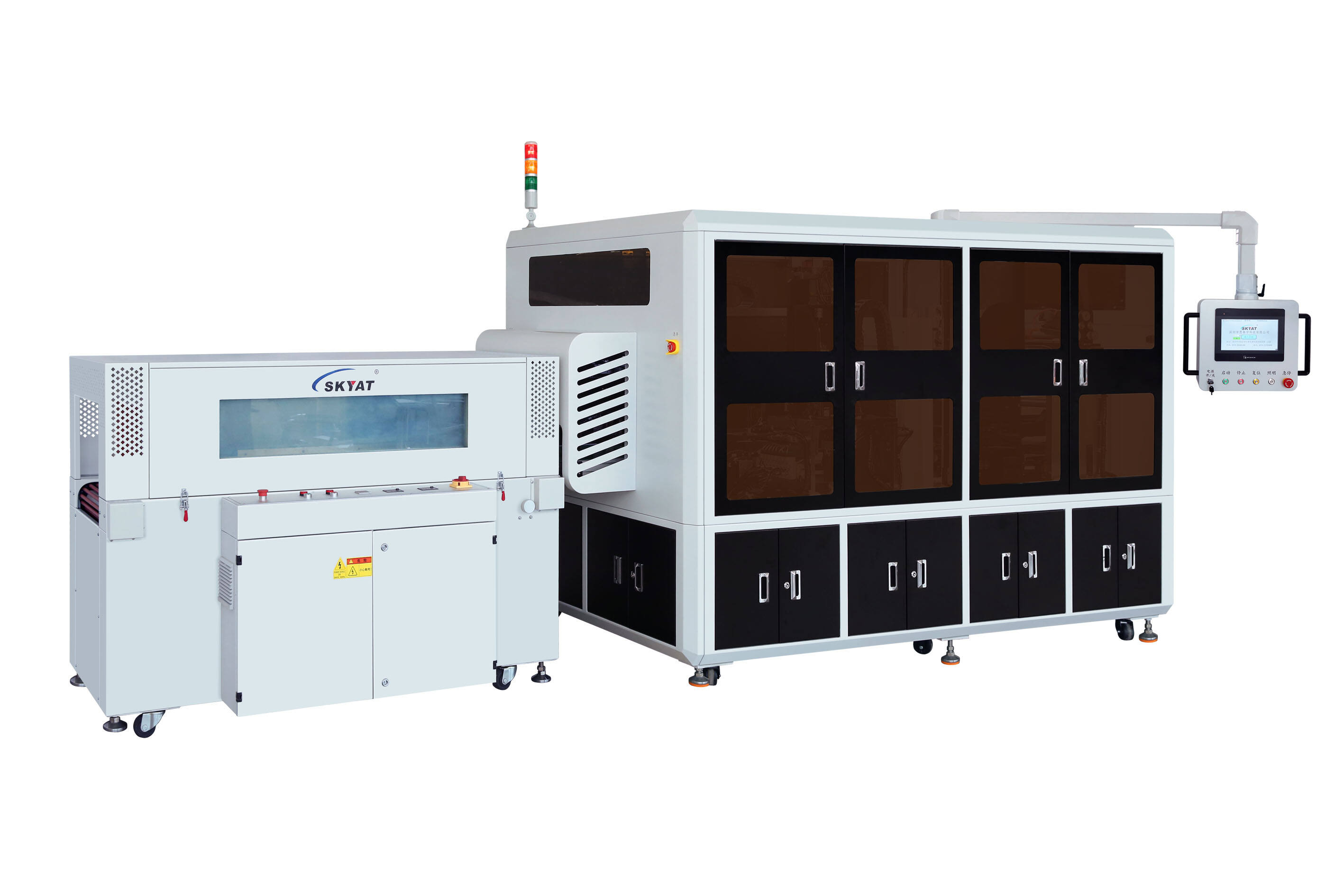A performance comparison of shrink wrapping machines evaluates key metrics like speed, consistency, versatility, and reliability, which vary across manual, semi-automatic, and fully automatic models. This comparison helps businesses select machines that align with their industry’s demands—from precise smart electronics packaging to high-speed automotive part wrapping. Speed is a defining performance metric. Manual machines, reliant on operator skill, process 5-20 items per minute, making them suitable only for low-volume operations like custom ceramic or small-batch cosmetics production. Their speed is limited by human dexterity, with operators struggling to maintain pace during long shifts. Semi-automatic machines, with motorized film feeding, boost speed to 20-60 items per minute, ideal for medium-volume industries such as healthcare products manufacturing. They balance automation with manual loading, ensuring consistent output without overwhelming operators. Fully automatic machines, however, dominate high-volume settings, processing 100-300+ items per minute—critical for automotive parts or new energy component production, where assembly lines demand non-stop packaging. Consistency and quality are equally important. Manual machines produce variable results, with wraps ranging from tight to loose based on operator technique. This inconsistency risks product damage during transit, making manual machines unsuitable for delicate items like game consoles or pharmaceutical vials. Semi-automatic machines improve consistency by automating sealing and shrinking, though manual loading can still cause minor misalignments—acceptable for tea boxes but risky for high-end electronics. Fully automatic systems, equipped with sensors and vision systems, ensure uniform film tension, precise heat distribution, and perfect alignment. For example, when wrapping drone components with irregular shapes, automatic machines adjust settings in real time to avoid wrinkles or gaps, a level of precision manual methods can’t match. Versatility across product types and materials is another performance indicator. Manual machines excel at handling irregularly shaped items, such as custom steel parts, as operators can manually adjust film placement. However, they struggle with diverse materials, often failing to shrink thick or eco-friendly films evenly. Semi-automatic machines handle standard shapes e.g., tea boxes, cosmetic jars efficiently but struggle with extreme sizes or heavy items. Fully automatic machines, with adjustable conveyors, film guides, and heat zones, adapt to everything from small smart electronics components to large automotive panels. They also work seamlessly with various films—anti-static for electronics, biodegradable for new energy brands, and sterile for pharmaceuticals—adjusting heat and tension to match material properties. Reliability and downtime tolerance vary significantly. Manual machines, with few moving parts, rarely break down but suffer from human-related downtime e.g., operator breaks or fatigue. Semi-automatic machines have moderate reliability, with occasional jams from misaligned products, requiring 1-2 hours of weekly maintenance. Fully automatic systems, while complex, feature predictive maintenance sensors that alert operators to worn parts e.g., heating elements, reducing unplanned downtime to less than 1 hour weekly. This reliability is critical for industries like steel manufacturing, where production halts cost thousands per minute. Energy efficiency, though often overlooked, impacts long-term performance. Manual machines use minimal energy, with small heat guns or tunnels consuming little power. Semi-automatic machines require more energy for motorized components but remain efficient for their output. Fully automatic systems, despite higher energy use, optimize consumption with variable speed motors and heat recovery systems, ensuring their energy per unit packaged is lower than manual methods—important for new energy brands prioritizing sustainability. By weighing these performance metrics against their needs, businesses can choose machines that deliver the speed, quality, and versatility required to thrive in their industry.




Copyright © 2025 By Skyat Limited. - Privacy policy